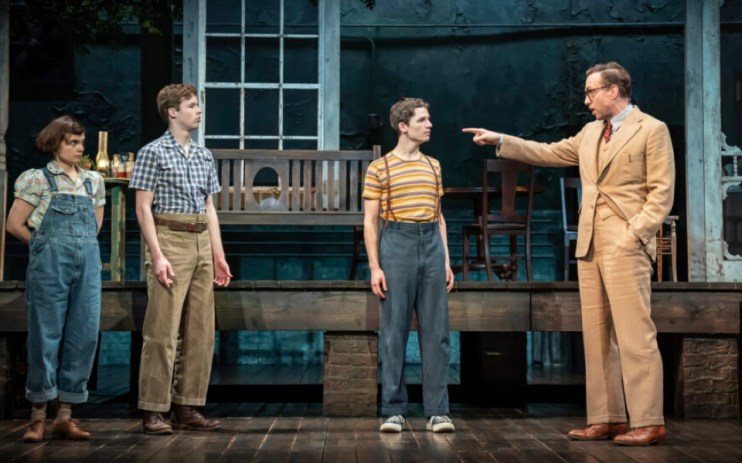To Kill A Mockingbird review: Aaron Sorkin breathes new life into Harper Lee’s novel

Following its critically acclaimed run on Broadway, Hollywood screenwriter Aaron Sorkin’s retelling of this classic of modern American literature hits the West End, and it is not to be missed.
Sorkin takes a fresh look at the illustrious tale of defence lawyer Atticus Finch, his children, the mysterious Boo Radley and the falsely accused black defendant, Tom Robinson, in the fictional deep south town of Maycomb during the 1930s.
Contemporary literary opinion has identified the problematic white saviour trope in Harper Lee’s 1960 novel, which Sorkin endeavours to repurpose for the modern audience, most significantly by giving the key black characters the voice they never had. Calpurnia, the Finches’ maid, tells Atticus how it is; Tom confronts Atticus and his approach to running the case. Echoes of modern America are palpable throughout, making Sorkin’s take all the more compelling and important.
When a black character is killed, Calpurnia asks, “How many times was he shot?”. Though Atticus refuses, she demands an answer. “17 times”, he finally replies. Atticus is challenged in an unprecedented way, giving rise to a modified protagonist, played by the consummate Rafe Spall; the consistent, virtuous father from the pages of the novel, the “most honest and decent person in Maycomb”, begins to recognise the flaws in his firmly held tenet that every person is essentially good.
Spall’s Atticus flusters, rages, and ultimately, proves to be as flawed as the rest of us. The expansion of these characters affords the story a new dimension; they are the literary friends we know and recognise, but are now equipped with the accumulated knowledge of the time passed since they were forged in Lee’s mind.
The essence of the production stays true to its origins but is dusted of its more problematic cobwebs, and adapted spectacularly for stage. Sorkin’s coup is not just one of characterisation, but of narrative structure, beginning at the end and hopping back and forth in time.
The trial is the structural epicentre, creating a pacey courtroom drama, underpinned by a pitch-perfect cast, sleek direction, simple sound production and a dreamy set. It shifts fluidly between the tension of the courtroom and the intimacy of the Finches’ front porch on a balmy summer night.
Sorkin’s revision embraces the heart of the original and conveys it to a new generation, allowing us, more than ever, to do precisely what Atticus famously suggests: “You never really understand a person until you consider things from his point of view… until you climb into his skin and walk around in it.
